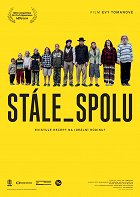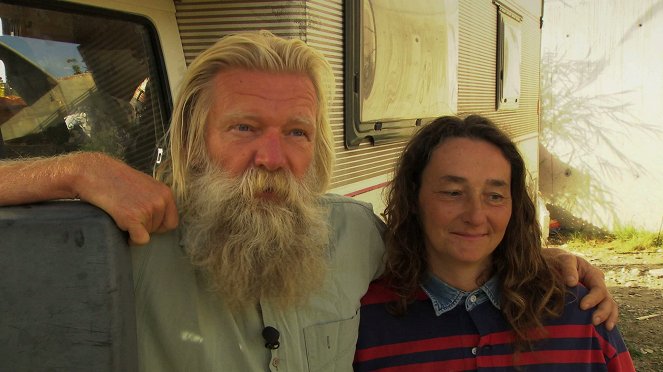Tartalmak(1)
Van recept arra, hogy milyen az ideális család? 25 évvel ezelőtt Petr a városban élt és informatikát tanult. Azután megismerkedett a jól szituált, egyetemista Simonával, akivel elhatározták, hogy megvalósítják álmukat: együtt szabadok lesznek. Mára 25 éve vannak együtt, 9 gyerekük van, folyó vizük nincs, ahogy rendes fürdőszobájuk és WC-jük sem, mindannyian együtt élnek egy lakókocsiban épületben a mező közepén. Az önfenntartás, a szeretet és az összetartás a családban az irányadó elvek. Vajon fojtogatóvá válik-e az apai szeretet a gyerekek számára? A konvencionális élet elutasítása áldozatokkal jár az egész család számára. Képesek lennének a modern társadalomba való beilleszkedésre? (Budapest International Documentary Festival)
(több)Recenziók (1)
If I didn't have the opportunity to read the extensive interview with Eva Tomanová in a magazine, I would have a tendency to judge her work more leniently. But in that very interview, she revealed her perspective on the project to such an extent that I consider the outcome a fatal defeat. At first glance, this documentary lacks confrontation. But let's face it, if the director had made Mr. Mlčoch feel threatened, he would naturally have backed off and there would be nothing left of the film. Nevertheless, a bolder approach could have been taken and significantly more material could have been gathered. It was possible to interview relatives, and neighbors, take advantage of the several-month separation of the oldest daughter from the head of the family, etc. However, Eva Tomanová made the biggest mistake in allowing herself, like the rest of the family, to be tamed by Mr. Mlčoch. She lost her distance and it is simply noticeable in the project. Basically, she didn't even understand the power of the material she discovered. The Mlčoch family can be viewed in three ways. Firstly, as an expression of an alternative lifestyle, but that is completely irrelevant in my opinion. Secondly, as a manifestation of patriarchal societal organization, in which the eldest man represents the leader of the clan who decides on the functioning of the community. And thirdly, and in my opinion, precisely the case of the Mlčoch family, as a community operating in the spirit and according to the mechanisms of religious sects. An extremely dominant, manipulative, and confident man was lucky enough to come across an extremely submissive, manipulable woman with low self-esteem, and the result is exactly what the viewer can observe. Many men must envy Mr. Mlčoch because getting hold of this material means enjoying their absolute dominance and shaping their partner in their image. It doesn't help at all that Mrs. Mlčochová has a higher education and is not stupid. Well-educated people are much more inclined to sect-like lifestyles and various ideologies. If Tomanová had understood what was at stake here, she could have beautifully captured an environment that is otherwise completely inaccessible to the camera because various people like this are smart enough to keep the media at bay. Mr. Mlčoch decides everything and even though theoretically nothing prevents family members from leaving, they would not survive in the outside world because they know nothing about that world and cannot make decisions independently. Overall impression: 35%.
()

